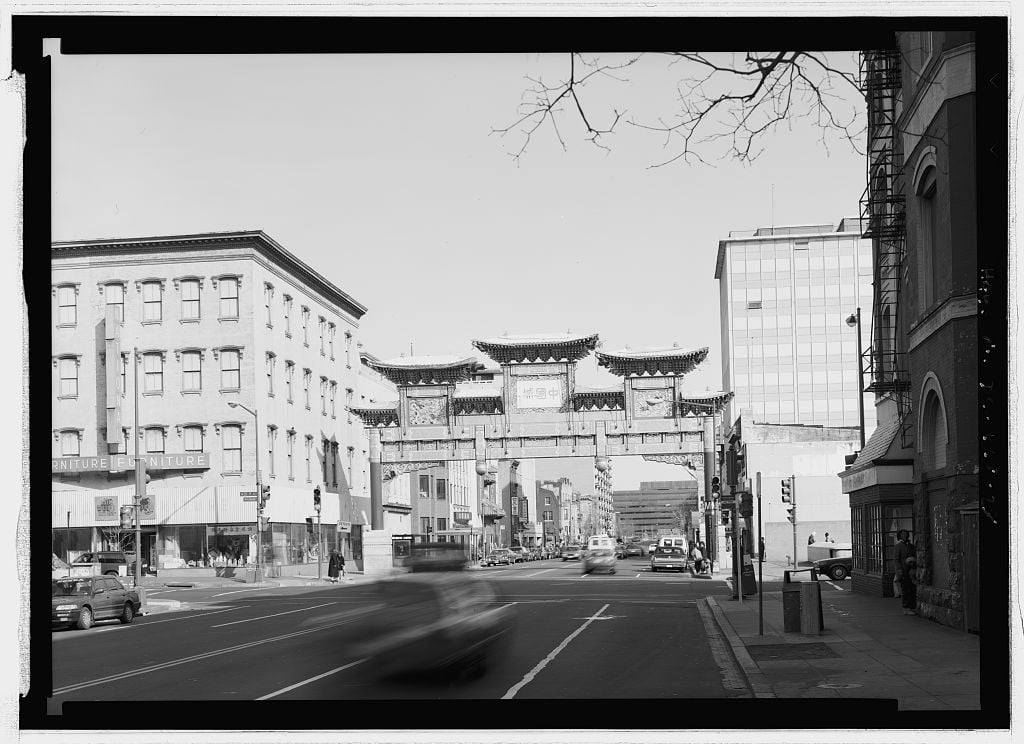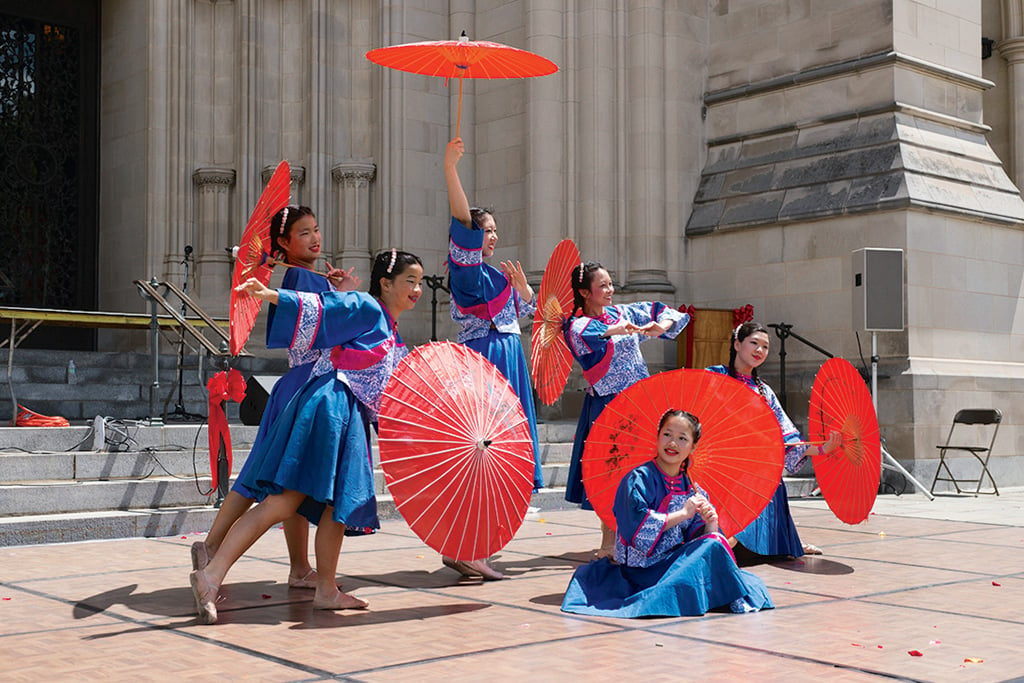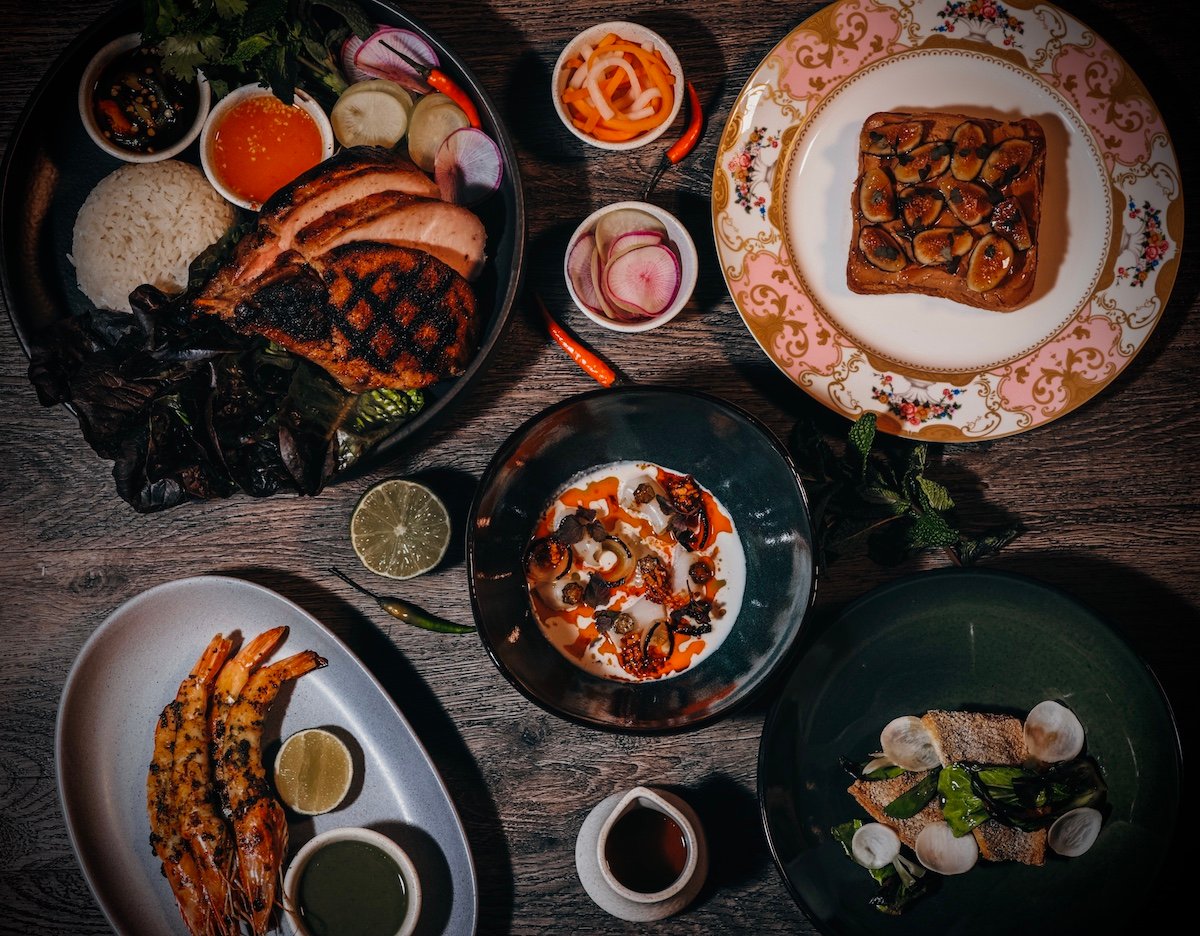Since Congress established Asian American and Pacific Islander (AAPI) Heritage Month in 1992, people in the United States have commemorated it by attending events, watching AAPI-focused movies, reading books by Asian authors, and more in an effort to recognize and celebrate Asian American history and culture. However, the rapid increase in anti-Asian hate crimes in the US this past year has heightened public awareness about the discrimination Asians face. We spoke to ten Asian Americans around the Washington area about how they are celebrating AAPI Heritage Month, and why this year is particularly important.
US Representative Andy Kim
Kim, who represents New Jersey’s third congressional district in Congress, says he has participated in celebrating AAPI Heritage Month for as long as he can remember, usually with good food. However, this year feels different to him. “I’m trying to use this month to build an effort to really sustain this attention,” he says. Kim is celebrating this month in many different ways: speaking at events hosted by companies and universities to talk about AAPI history, attending in-person rallies in New Jersey, hosting town halls, and working on Representative Grace Meng and Senator Mazie Hirono’s Asian hate crimes bill, which President Joe Biden is about to sign. He encourages Asian Americans in DC to find at least one way to celebrate and encourage others to participate as well. “AAPI Heritage Month is our time to take back the narrative,” he says. “I want people to come out of this with a greater sense of empowerment, like we belong.”
Victoria Lai, Owner and Founder of Ice Cream Jubilee
Lai says she has always leaned on her Chinese American background and experiences to create flavors. Some of her Asian-inspired products at Ice Cream Jubilee include Red Bean Almond Cookie, Matcha Tea, Szechuan Peppercorn, and more. When anti-Asian hate crimes spiked last year, she raised money for Asian Americans Advancing Justice (AAJC) by donating 10 percent of the sales made from nationwide shipping of Asian ice cream flavors. In honor of AAPI Heritage Month this year, Ice Cream Jubilee will continue donating to AAJC and has created a new, Asian-inspired flavor called Key Lime Pandan Pie. On a personal level, Lai has started talking with her four-year-old about what it means to be Asian: “Having a month to celebrate AAPI Heritage Month pushes me to have those conversations with my daughter and other kids’ parents about this,” she says.
Ben de Guzman, Director of the DC Mayor’s Office on Asian and Pacific Islander Affairs
De Guzman, who is Filipino American, started his career at the advocacy group Asian Americans Advancing Justice and now leads the largest AAPI agency of its kind in the United States. Every year during AAPI Heritage Month, his office plans a series of events for the DC community. This year, the bulk of the activities—which include a traditional Chinese tea ceremony demonstration and a walking tour—are virtual. “AAPI Heritage Month has always been an opportunity to look at the good, the bad, and the ugly,” he says. “This year, unfortunately, has been more ugly, but it has also given us the chance to think about the idea of resilience and how our communities have always had to respond to challenges.” To combat the “ugly,” he encourages DC residents to support initiatives that oppose violence and attend AAPI events, including those his office is hosting. “Solidarity and allyship matters,” he says. “It has shown me that hope exists.”
Maggie Liu, Deputy Director of Global Community at Girl Up
Liu, who was born in Taipei, Taiwan, first heard about AAPI Heritage Month after graduate school, when she worked for the New York City government. Now, she is co-chair of the United Nations Foundation’s Asian American and Pacific Islander Affinity Group, which has almost 50 members. This year, the affinity group is hosting a series of virtual events for UNF employees, some of which include a Mahjong tutorial, a Ramadan solidarity fasting day, and watching a PBS series on AAPI history. “This year, what makes it so important is that there is a “great awakening,” she says, citing increased awareness of the discrimination Asians have faced. “There should never be fatigue when it comes to learning about your fellow citizens,” she says.
Kevin Tien, Chef at Moon Rabbit
Vietnamese American chef Tien co-founded Chefs Stopping AAPI Hate, a nationwide initiative that brings chefs together to fundraise for local AAPI organizations after anti-Asian hate crimes escalated this year. This month, the organization is hosting dinner series across the country to celebrate AAPI Heritage Month. On a personal level, Tien is celebrating this month by spending more time with his friends and family and checking in with loved ones, recognizing that this past year has been particularly difficult. “This year, it’s about celebrating and having people finally recognize us as real Americans,” he says, explaining that he wants his community to be valued and treated with respect. Tien wants DC residents to support local businesses this month, especially because the pandemic impacted a lot of minority-owned stores. “As long as you are doing something,” he says, “it is better than doing nothing.”
Philippa P.B. Hughes, Founder, Curiosity Connects
Hughes says it took her decades to start embracing her Asian heritage, which she’s been doing by reading up on Vietnamese history and incorporating her identity into her work. As an artist, Hughes travels around the world organizing art experiences for people on both sides of the political spectrum and often shares her experiences during the conversations she leads. Previously, she never celebrated AAPI Heritage Month, but this year she’s researching what events she can attend at the Eden Center in Virginia, and her book club will read the book Minor Feelings, written by an Asian author. “I’ve been thinking a lot about how we can have restorative justice, how humans need to see each other as human beings,” she says. “It’s why these kinds of celebrations are so important because it’s about celebrating our humanity.”
Jeff Le, Vice President for Public Policy and External Affairs at Rhino
Before the last two years, AAPI Heritage Month was something Le says he didn’t notice. Now, he considers this month especially significant. He’s celebrating by talking with other Asians about the hardships they face, sharing personal stories, and more. He recently shared his story in a Politico article and is mentoring young Asian professionals through a WhatsApp group. Le says he was inspired to speak out and participate in events this year because of how friends and loved ones have experienced hate and racism these past few months. “Asian Americans for so long have been historically unseen, and acts have been perpetrated, have been invalidated or marginalized, sometimes by other groups or sometimes by us,” he says. He has three calls to action for the DC community to help celebrate this month: actively mentor a young professional, invest in Asian organizations and businesses, and tell your story. “We have a very unique political and social awakening—people are demanding more, and that to me is really powerful. That’s the magic of this month.”
Mary Marston, American University Law Student
Martson first heard about AAPI Heritage Month in high school and thought it was an interesting concept because of how people don’t usually think about the impact of systemic racism issues on Asians. This year, things are different. “With the violence our communities have faced this past month, it’s obvious that our adjacency to white America is conditional upon us not being perceived as a ‘foreign threat’ to the United States,” she says. Marston, whose mother is Burmese and father is Latino and Afro-Caribbean, says AAPI Heritage Month is a way to show the world she and others are “shamelessly Asian.” She’s celebrating this month by attending an AAPI Bar Association event, reflecting on the work she’s done for her community as a law student, and participating in a photography project called Invisible No More. “We can’t liberate ourselves without collective liberation,” she says. “All people of color need to band together and support each others’ needs.”
Welton Chang, Chief Technology Officer at Human Rights First
Born in Taiwan, Chang came to the United States with his family when he was four and identifies as Chinese American. A military veteran who served in Iraq and Korea, he’s now settled in DC with his family. To celebrate AAPI Heritage Month this year, he’s participating in a panel hosted by Georgetown University on AAPI and security. “It’s important for people to see Asian faces in roles that are prominent, where you don’t get shuffled behind the scenes,” he says. He explains that by celebrating AAPI Heritage Month and bringing awareness to the racism that Asians experience, he’s trying to make sure his son won’t face the same issues he had to. “We need the time to reflect and talk about these issues out loud—that’s what AAPI Heritage Month is about.”
Anna Arnsberger, Woodrow Wilson High School Student
Arnsberger, the editor-in-chief of her school newspaper The Wilson Beacon, is half-Korean. In the past, she says she hasn’t attended any AAPI-focused gatherings but is planning to look into some DC local virtual events and has written articles about why this year is different. She’s also been educating herself on Asian history by reading books by Asian American authors. “If you are somebody who hasn’t really engaged with Asian American history or culture at all,” she says, “I think this is a great opportunity for you to start.”


















